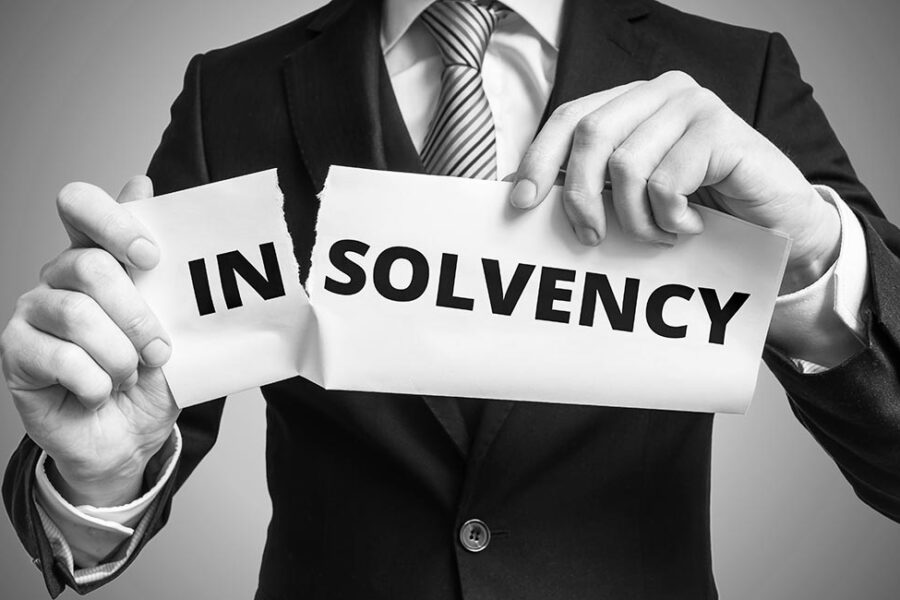The preamble of the IBC provides for a time bound resolution of the corporate debtor where an application for corporate insolvency resolution process (“CIRP”) has been preferred either by the financial creditor u/s 7, by an operational creditor u/s 9 or by the corporate debtor itself u/s 10. The Code which came into force on 1 December 2016 consolidated and amended laws relating to the insolvency resolution of the corporate person, partnership firms, individuals in a time bound manner to maximize the value of assets of such person, to promote entrepreneurship, availability of credit in the market and balance the interests of all the stakeholders. For achieving each of the said objectives, the Code provides for establishment of an Insolvency & Bankruptcy Board of India.
The Code under section 12 provides that the CIRP shall be completed within a period of 180 days which can be extended by a further duration of 90 days. The proviso specifies an outer limit where the entire CIRP has to be completed within a duration of 330 days while taking into account all the proceedings which are pending adjudication before any forum including any arbitral tribunal or civil court. Once the application is admitted by the Adjudicating Authority i.e., the NCLT then imposes moratorium u/s 14 of the Code to stay all the pending proceedings before any other forum. It also restricts any transfer, sale, creation of charge or any encumbrance upon the assets of the Corporate Debtor.
A key issue is whether financial or operational creditors can initiate CIRP after the prescribed timeline has elapsed. Essentially, this raises the question of whether Section 18 of the Limitation Act, which allows for an extension of the limitation period if a liability is acknowledged in writing, can be applied when the time limit for filing has expired. The Limitation Act provides a three-year period from the date of default for filing insolvency applications, with Article 137 being applicable. Section 18 of the Limitation Act allows for a fresh limitation period if a written acknowledgment of liability is made before the original period expires. This provision does not revive a time-barred debt but extends the existing limitation period. Indian courts generally interpret such acknowledgments liberally.
In the Supreme Court case Laxmi Pat Surana vs Union Bank of India & Anr. [Civil Appeal No. 2734 of 2020] (“Laxmi Pat”), the Court clarified the applicability of Section 18 to insolvency proceedings under the IBC. The brief facts in the Laxmi Pat case are that, in 2007 and 2008, Union Bank of India (“UBI”) extended credit facilities to Mahaveer Construction, a proprietary firm which was guaranteed by one Surana Metals Limited. The date of default was January 30, 2010, whereas, UBI filed an application under Section 7 of the IBC against Surana Metals Limited (as the corporate debtor in respect of the corporate guarantee given by it) before the NCLT on February 13, 2019. The application was admitted by the NCLT and the appeal against the order of admission was dismissed by the NCLAT. The order of the NCLAT was thereafter challenged in appeal before the Supreme Court.
Section 18 provides that if a written acknowledgement of liability is given prior to the expiry of the prescribed period of limitation, a fresh period of limitation shall be computed from the time of signing of such acknowledgement. The effect and operation of Section 18 is not to revive a debt, the recovery of which is time barred as per the Limitation Act, but only to extend an existing period of limitation. While the Supreme Court reiterated and held that the intent of the IBC was not to reopen or revive time-barred debts, it clarified that accrual of fresh period of limitation in terms of Section 18 is under the Limitation Act itself and it will not be a case of giving new lease to time-barred debts. Accordingly, the Court held that there is no reason to exclude the effect of Section 18 to the proceedings initiated under the IBC. In relation to the liability of a guarantor, the Supreme Court reiterated that such liability is coextensive with the principal borrower under Section 128 of the Contract Act, 1872. Therefore, when the principal borrower acknowledges its liability, the period of limitation for enforcing rights under such a guarantee would also stand extended, subject to the contract of guarantee.
The Laxmi Pat judgment has provided much-needed clarity on whether provisions for extension of limitation periods under the Limitation Act are applicable to proceedings under the IBC. The Supreme Court has interpreted Section 238A as intended, by making all provisions of the Limitation Act, as applicable, available to proceedings under the IBC. Hence, where there is an acknowledgment of debt within the period of limitation, with the intention to establish a jural relationship such as that of a debtor and creditor, such acknowledgment would extend the period of limitation for initiating proceedings under the IBC.


Top-notch medications sourced globally.
cost of lisinopril for sale
They always keep my medication history well-organized.
Their international health workshops are invaluable.
can i get cytotec price
They understand the intricacies of international drug regulations.
They provide peace of mind with their secure international deliveries.
can i buy cytotec without dr prescription
A gem in our community.
The staff provides excellent advice on over-the-counter choices.
cost generic clomid pills
Delivering worldwide standards with every prescription.
Providing global access to life-saving medications.
can i get cheap cipro without prescription
A cornerstone of our community.
I’ve sourced rare medications thanks to their global network.
can you buy lisinopril without a prescription
Leading the charge in international pharmacy standards.